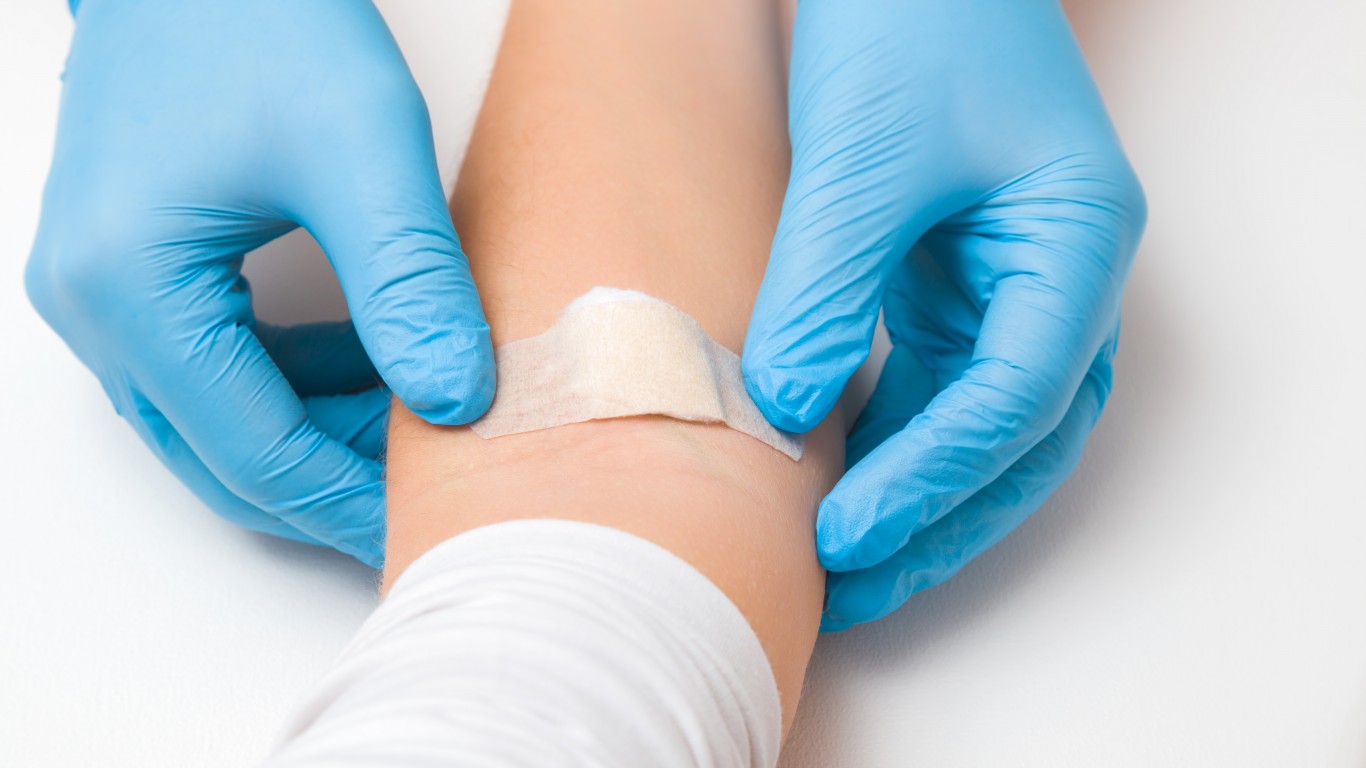

Ahead of election years, the cost and future of health care has become one of the top debates for better than two decades now. Most politicians say that they want to lower prescription drug costs. The only problem is that it never really seems to happen on a measurable basis. A study from Rx Savings Solutions showed that pharmaceutical companies have issued price hikes on hundreds of drugs for 2020. While the average price increase of 5.8% was less than the average price hike of just over 6% seen a year earlier, some companies are targeting higher price hikes than others.
Pfizer Inc. (NYSE: PFE), which saw its stock lose 10% in 2019 versus the 28% gain for the S&P 500, appears to be among the companies with the largest price hikes for prescription drugs in 2020. The data are from outside sources, and investors and consumers should keep in mind that some price hikes on the list prices may not be true price hikes after considering rebates and/or other discounts.
Pfizer was shown to have raised prices by more than 9% on over 40 pharmaceutical products for 2020. Pfizer was also shown to have price hikes of about 5.6% on about 27% of the drugs it sells in the United States, and prices were higher in 2020 on more than 90 drugs.
The WSJ reported that nearly half of the drugs with price hikes were classified as sterile injection drugs which are typically administered in hospitals and in medical clinics, with the majority being a hike of less than $1.00 per product dose.
A further executive summary of the CPI-RX from the White House in October 2019 showed that, as of August 2019, the annualized price change in drug prices had been -0.7% from a year earlier. The White House document also warned that there is no formal way of tracking net-net drug price changes due to the complexities and variables. It said:
The most informative measure of prescription drug prices would be based on net prices and would reflect all discounts and rebates. However, due to the difficulty in obtaining information on rebates, no such measure exists.
Heparin products, which are blood thinners, were shown to have price hikes of 15%, and that is after a 50% increase in the costs of its raw materials and expanded capacity to meet demand. The African swine flu in China was shown to have a hand in the cost of materials as the drug is derived from pig products, although Pfizer’s U.S. heparin supply is not shown to be sourced from China.
In a prior blog post, Rx Savings Solutions discussed the Consumer Price Index Prescription Drug Index (CPI-Rx) as an overall inflation measurement of drug prices. Unfortunately, this is only a partial guide as the CPI-Rx is shown to not include specialty drugs and that the CPI-Rx also does not accurately measure what insurers pay. These so-called list prices on drugs also do not take into consideration rebates and discounts and the group showed that some pharmaceutical companies are claiming that their prices are lower.
An opinion piece from NBC showed that Big Pharma greed is to blame for the industry’s price hikes, and that the status quo is unhealthy for anyone except pharmaceutical company executives.
In the case of Pfizer, the company was shown to have its price hikes offset by higher rebates paid to insurance companies and to sales organizations. Pfizer has come under fire from President Trump back in 2018 after raising prices at that time, and the company ended up rolling back those price hikes before reinstating them.
Pfizer’s loss of 10% in 2019 was versus a 19% gain for rival Merck and was versus a 25% gain for the SPDR S&P Pharmaceuticals ETF (XPH). As of the start of 2020, Pfizer’s Refinitiv consensus analyst target price of $41.91 implied a total return projection of 10.9% after taking its 3.9% dividend yield into consideration. That said, the 10% drop in 2019 was after a 20.5% gain in 2018 and the consensus data a year ago had been calling for upside of about 7.1%.
Sponsored: Attention Savvy Investors: Speak to 3 Financial Experts – FREE
Ever wanted an extra set of eyes on an investment you’re considering? Now you can speak with up to 3 financial experts in your area for FREE. By simply
clicking here you can begin to match with financial professionals who can help guide you through the financial decisions you’re making. And the best part? The first conversation with them is free.
Click here to match with up to 3 financial pros who would be excited to help you make financial decisions.
Thank you for reading! Have some feedback for us?
Contact the 24/7 Wall St. editorial team.



